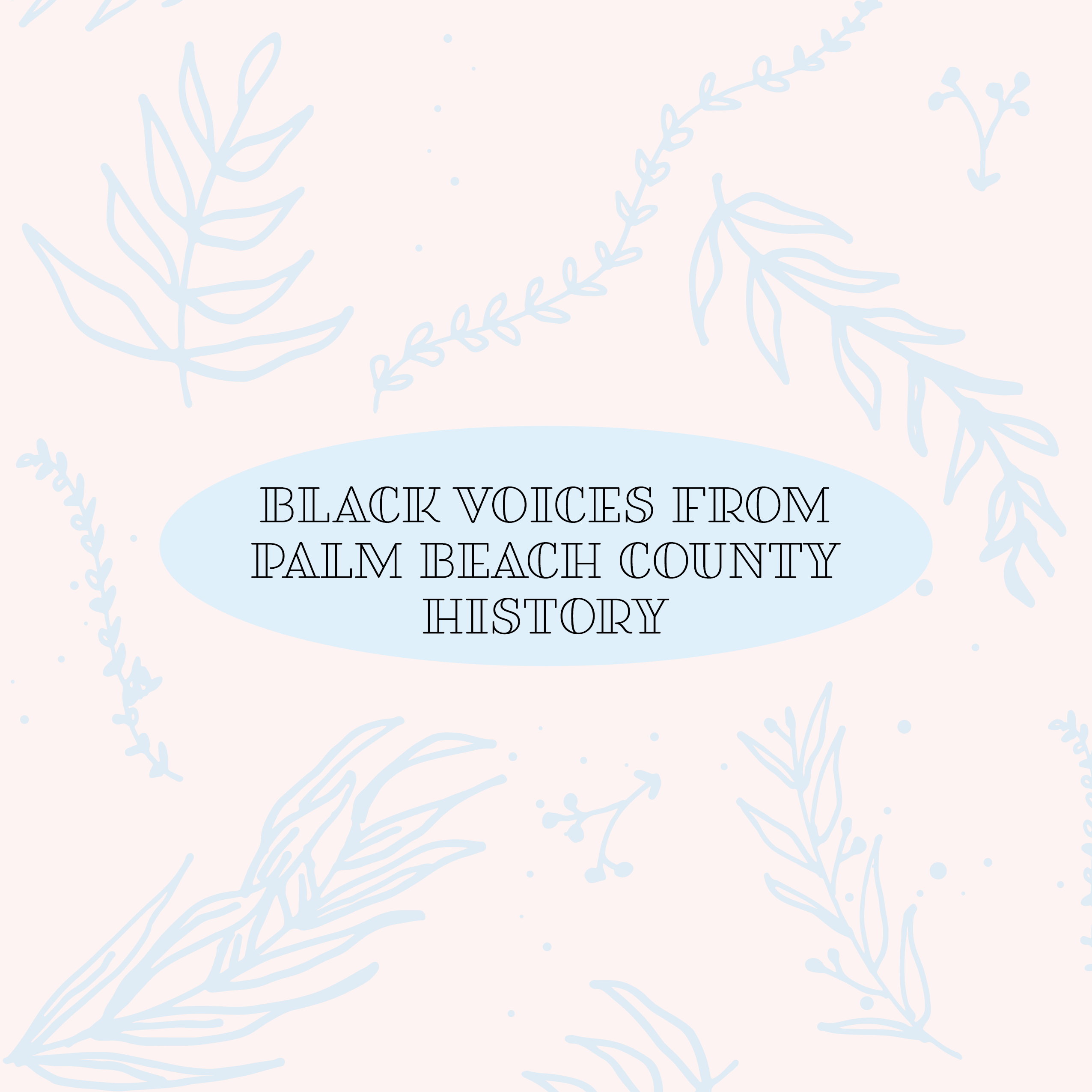
Nine Palm Beach County Influencers You May Not Know...
Graphic art by Caroline Frazier.
Each February, designated as Black History Month, we celebrate the lives of African Americans. All year round, however, you can learn your local Black history. Take a moment to meet nine Black Voices from Palm Beach County history who made a difference.
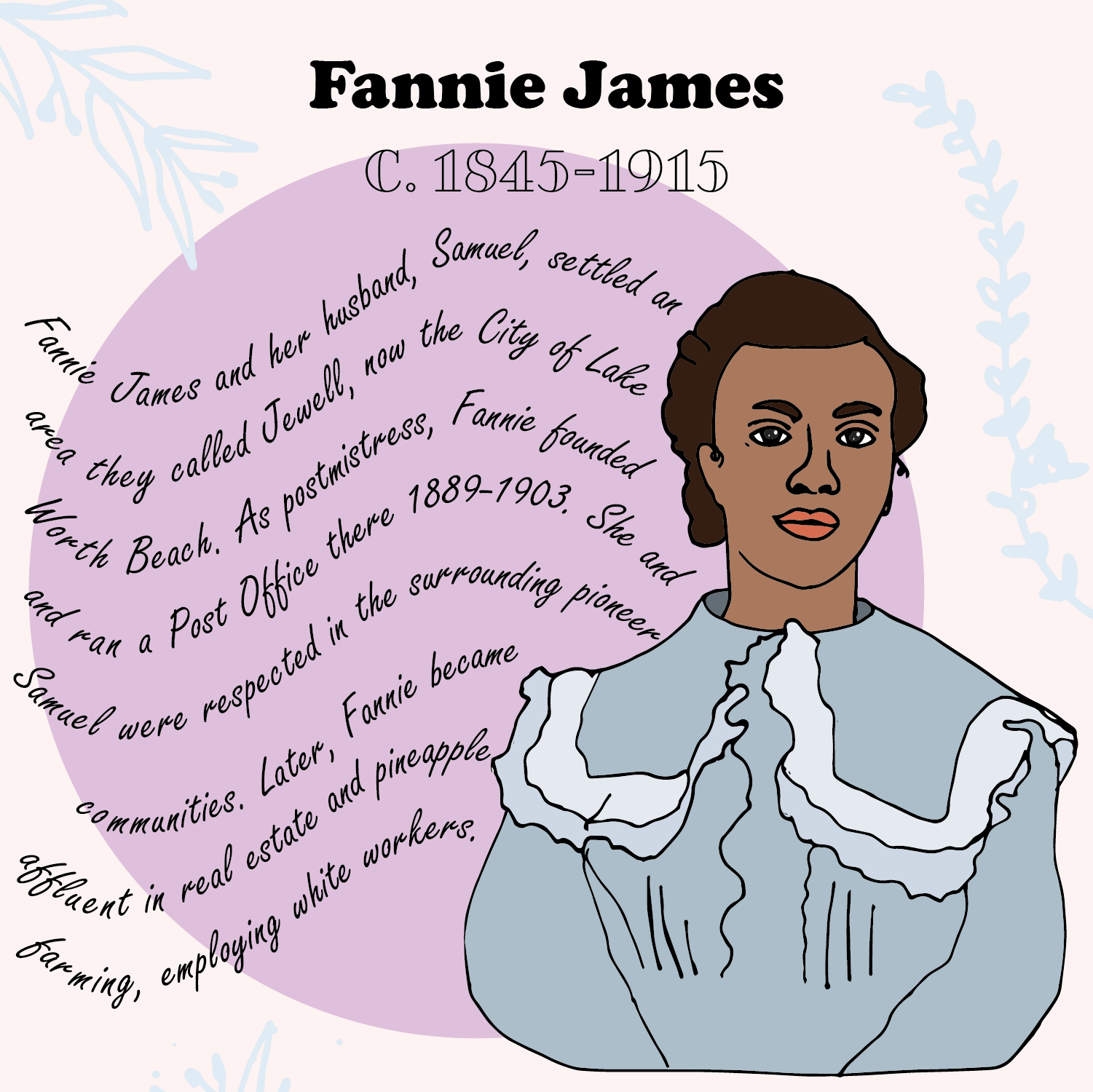
Fannie James (c.1845-1915), though believed to be a former Georgia slave, is shown repeatedly in historical documents to be of mixed race (mulatto), as is her husband, Samuel. They first lived in Tallahassee, next door to the postmaster, and in Cocoa. When they settled an area they called Jewell, now the City of Lake Worth Beach, Fannie started and ran the Jewell Post Office 1889-1903. Later she took over Samuel’s real estate business, became one of the region’s largest pineapple producers, employed white workers, and became affluent.
Praised for her hospitality and sociability, Fannie enjoyed a wide circle of relationships among both Blacks and whites, many of them community leaders. After selling her home, however, she was made to move outside the limits of the new Town of Lake Worth that prohibited Black residents until 1926. After desegregation, when the city built a memorial to the civil rights movement, it added a monument in front of the downtown post office to honor Fannie and Samuel that read in part: “The Jameses should always be remembered as the City of Lake Worth’s first settlers.”
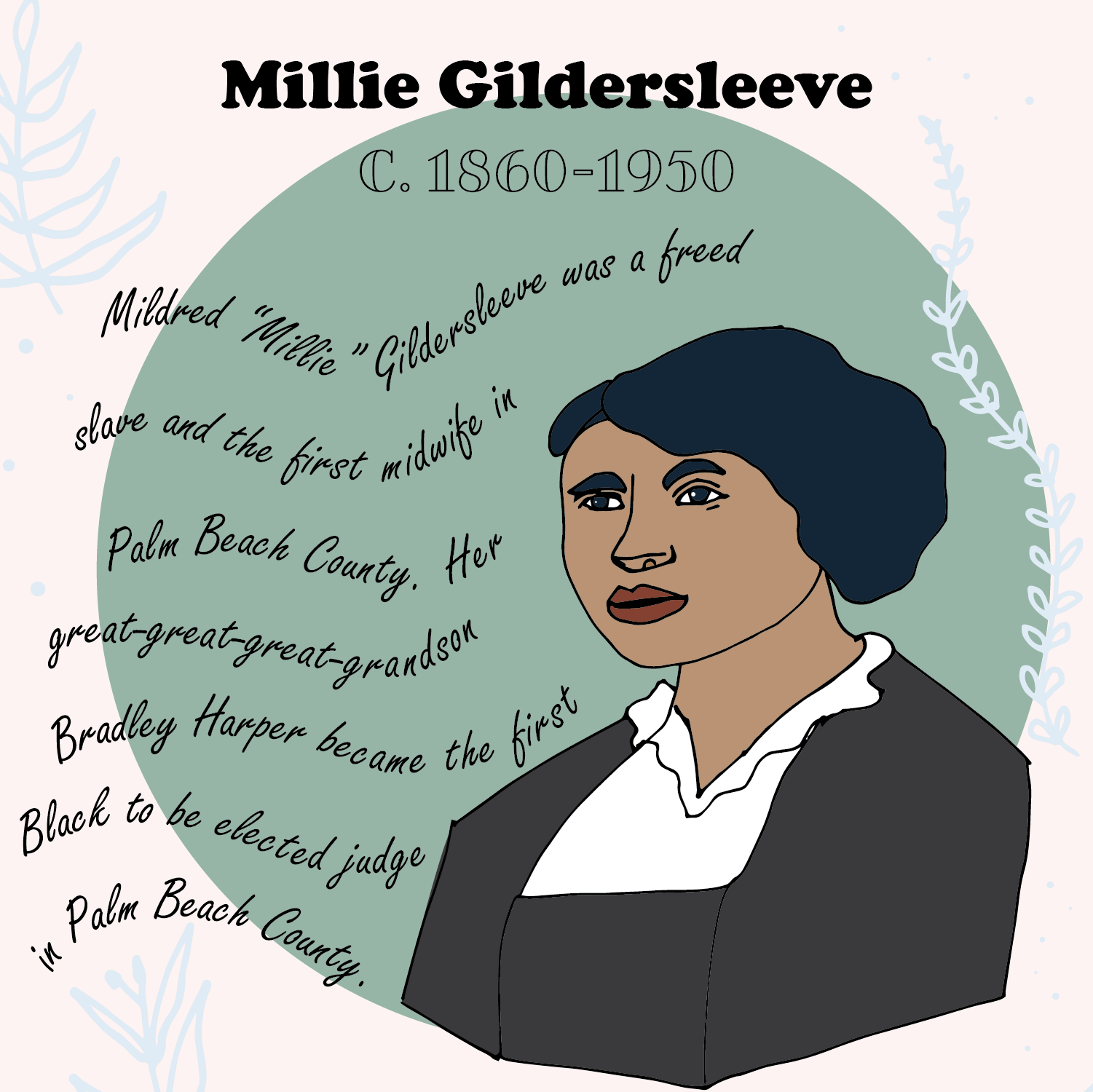
Mildred “Millie” Gildersleeve (c. 1860-1950) was one of the first African Americans to live on Lake Worth and the first midwife in Palm Beach County. She arrived from Georgia in 1876 with the Elisha N. “Cap” Dimick family. She was wed in 1889 to M. Jacob “Jake” Gildersleeve at the Dimick’s Palm Beach home.
About 1886 Millie started a long career as midwife for Dr. Richard Potter, who would call for her in a naphtha launch at her dock with a toot of his whistle. Together they attended both settlers and Seminoles.
The Dimicks sold land in Oak Lawn (now Riviera Beach) to Millie and Jake to build a home. The Gildersleeves also owned property west of the Oak Lawn Hotel, where Jake farmed produce. By 1916, they bought a home in Pleasant City in West Palm Beach on land that became Pleasant City Elementary School. They were founding members and officers of the Evergreen Cemetery Association.
Millie’s descendants include former State Representative James Harper and great-great-great-grandson Bradley Harper, the first Black judge to be elected in Palm Beach County.
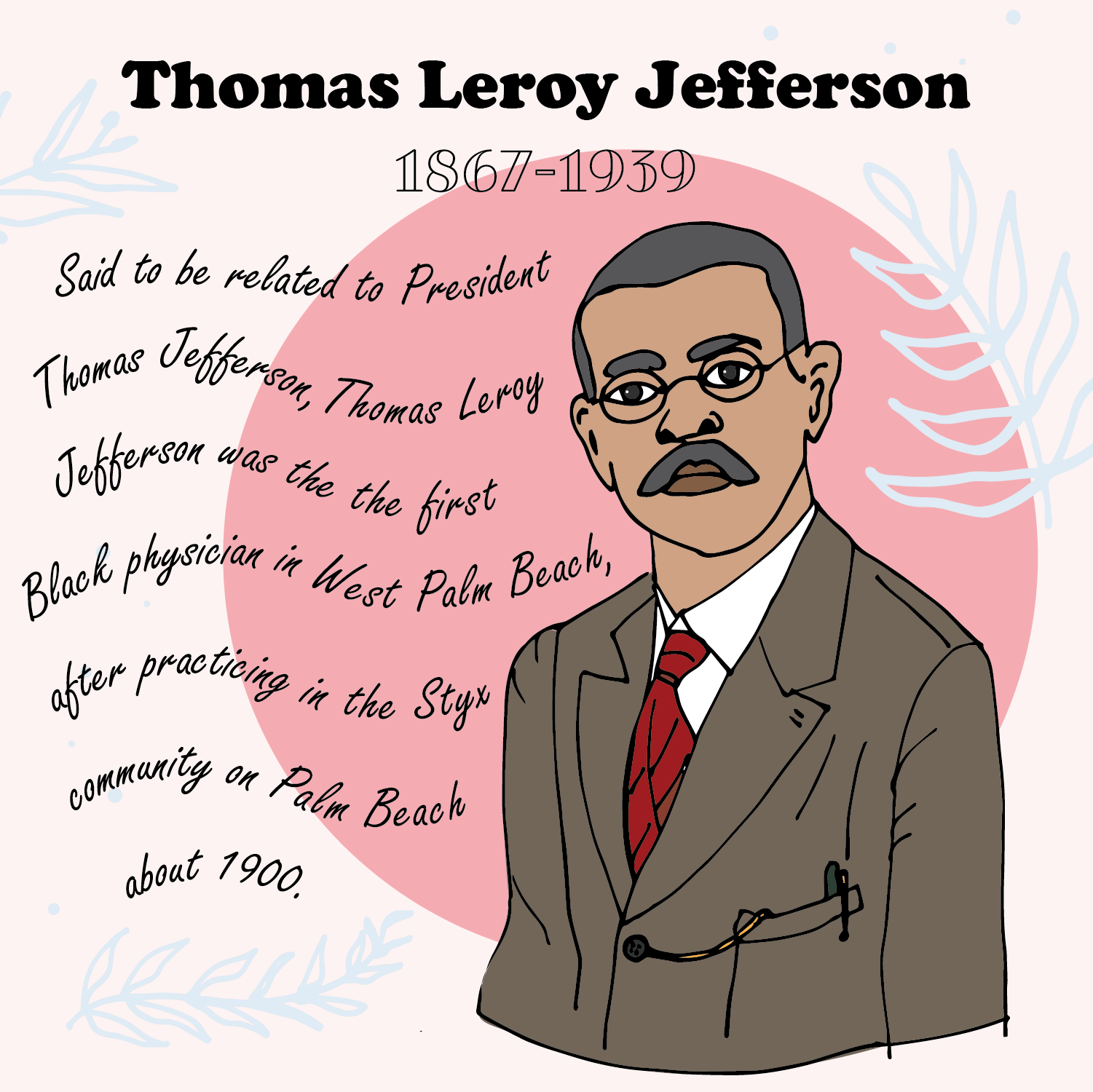
Thomas Leroy Jefferson (1867-1939) was the first Black physician in West Palm Beach. He was born in Mississippi, son of a major cotton grower who was said to be related to President Thomas Jefferson through slave Sally Hemmings.
Thomas L. Jefferson taught school and ran a drugstore in Louisiana, before attending medical school in Texas. He practiced there and in New Orleans. By about 1900, the family moved to Palm Beach, where Jefferson opened an office in the Black community on Palm Beach known as the “Styx.”
The Black residents of Palm Beach had all moved to West Palm Beach by 1912, including Jefferson, who opened a medical office on North Olive Avenue and a drugstore at Clematis Street and Rosemary Avenue. He was nicknamed the “bicycle doctor” because he frequently cycled around town, elegant and upright, with his black medical bag.
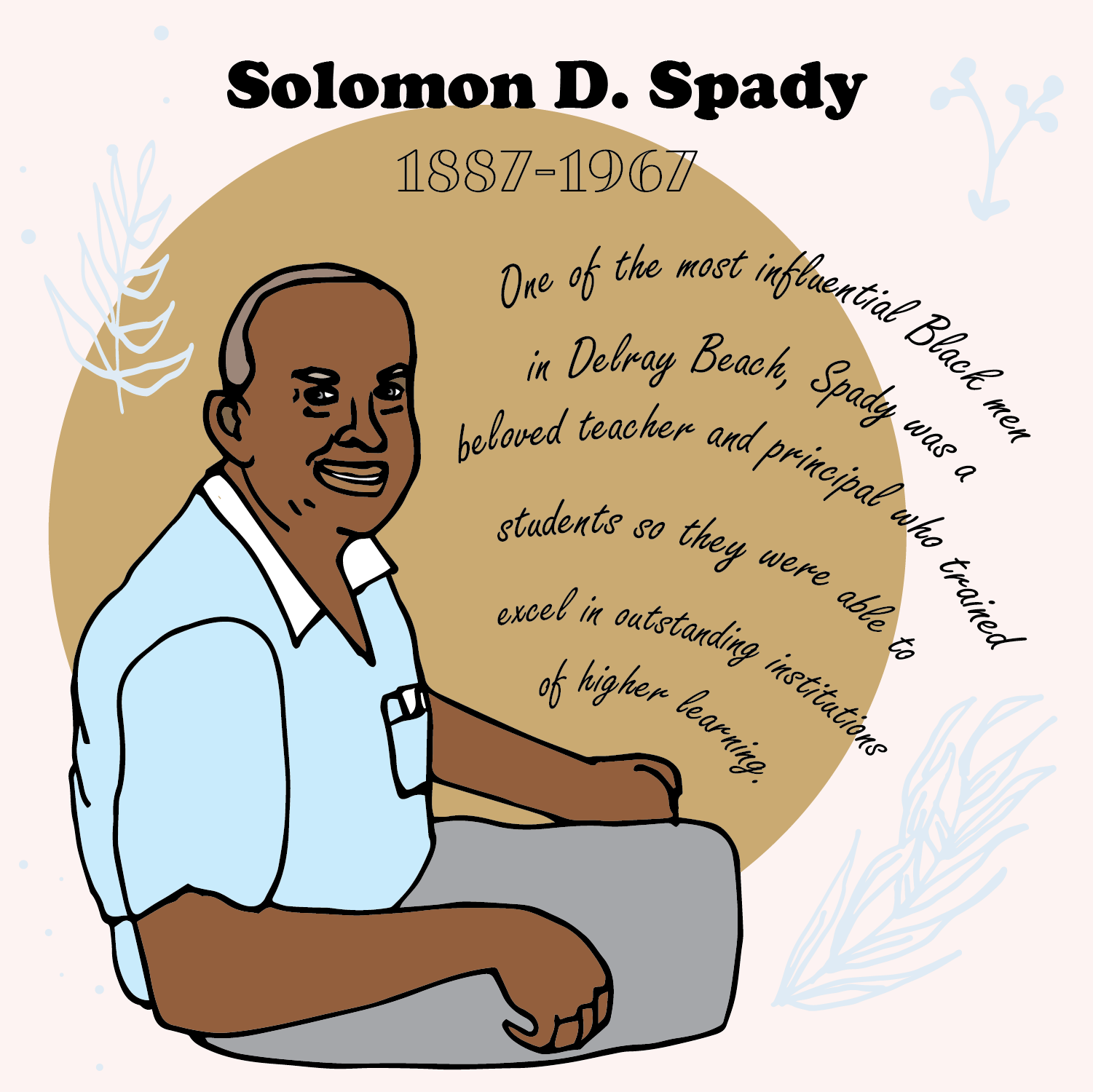
Solomon D. Spady (1887-1967) was raised on a Virginia farm and graduated from Hampton Normal and Agricultural Institute. He became affiliated with New Farmers of America and caught the eye of two renowned African Americans of his day, agricultural chemist Dr. George Washington Carver and Booker T. Washington of Tuskegee Institute. In 1922, Washington’s recommendation brought Spady to Delray to fill the dual role of teacher-principal at Delray County Training School. Spady’s tenure lasted thirty-five years, during which he became one of the most influential Blacks in Delray Beach.
Spady grew the school and in 1937 it became George Washington Carver High School.
“Prof” Spady taught woodshop and agriculture, leading his students to championships and using their skills in their community. Upon graduation, they were well-rounded and ready to excel at quality institutions. After retiring in 1957, he returned to Virginia, but his name lives on. His former school building became S. D. Spady Elementary School.
The Mission Revival-style home of Spady and his wife, Jessie Green, at 170 NW 5th Avenue was the first in the West Settlers neighborhood to have indoor plumbing, a telephone, and electricity. Today it serves as Spady Cultural Heritage Museum.
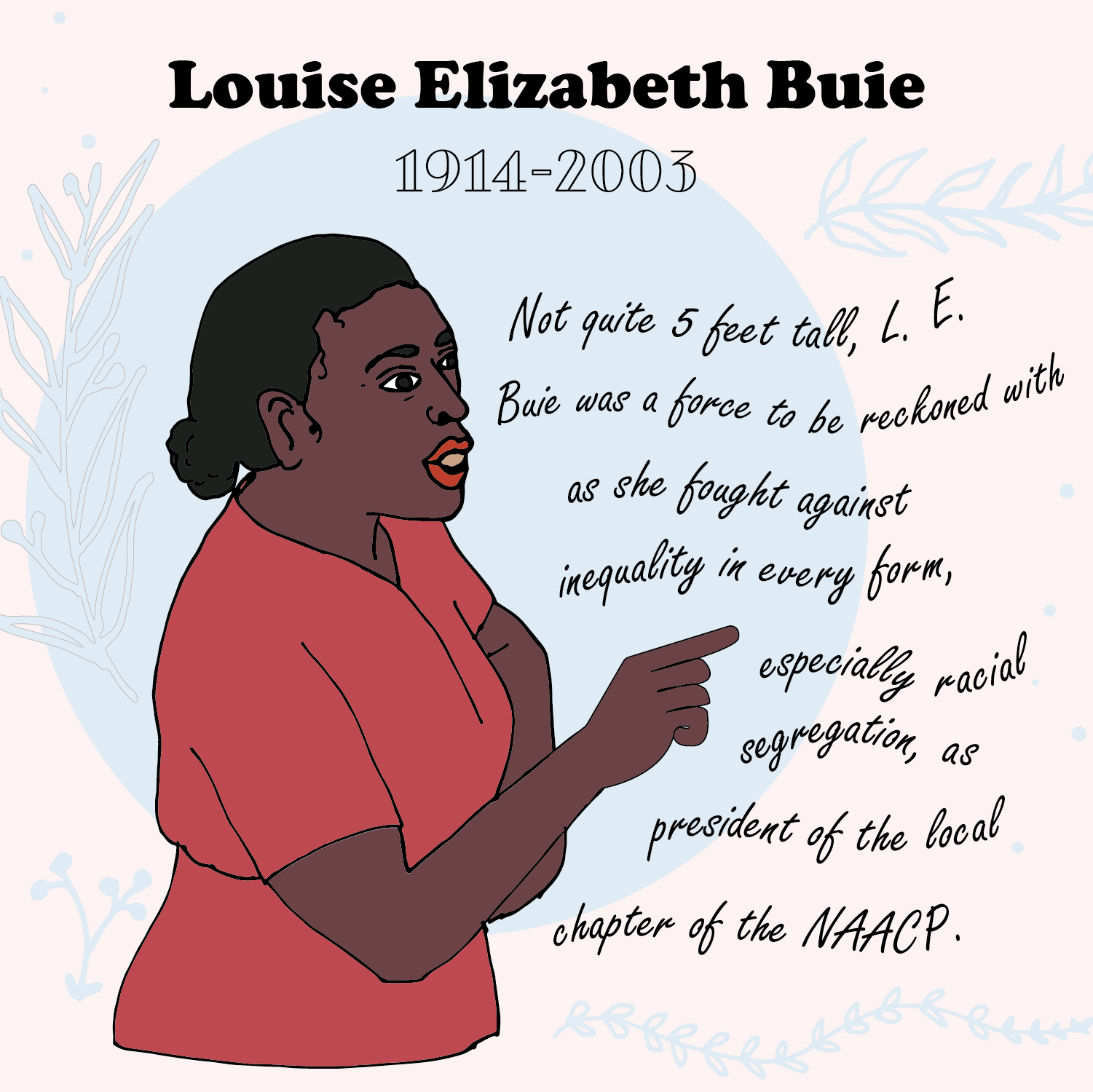
Louise Elizabeth “L. E.” (Baker) Buie (1914-2003), born in Georgia, came to West Palm Beach with her family as a child. When she had to leave high school to help support her family, she began a lifelong devotion to help others. After joining the local branch of the National Association for the Advancement of Colored People (NAACP) in 1937, she fought to walk across whites-only beaches, the first of many causes she joined. From 1954 to 1968, Buie led the local NAACP as president, and remained involved as president emeritus. When she was not being paid by the NAACP, Buie worked as a domestic worker on Palm Beach, an insurance agent, and a home healthcare nurse’s aide.
In the 1960s, Buie fought the school district to replace textbooks that left out Black history. She was at the forefront of adding a course in Black history to Palm Beach County schools. She battled segregation in schools, hospitals, restaurants, police and fire departments, baseball stadiums, election primaries, recreational facilities, and hotels. She participated in civil rights marches well into her eighties, from South Florida to the 1963 March on Washington, DC.
After Buie’s death, the Florida Legislature designated the Skypass Bridge that passes over the Port of Palm Beach in Riviera Beach as the L. E. Buie Bridge. Among many honors from organizations is the co-naming of the Urban League building in West Palm Beach.
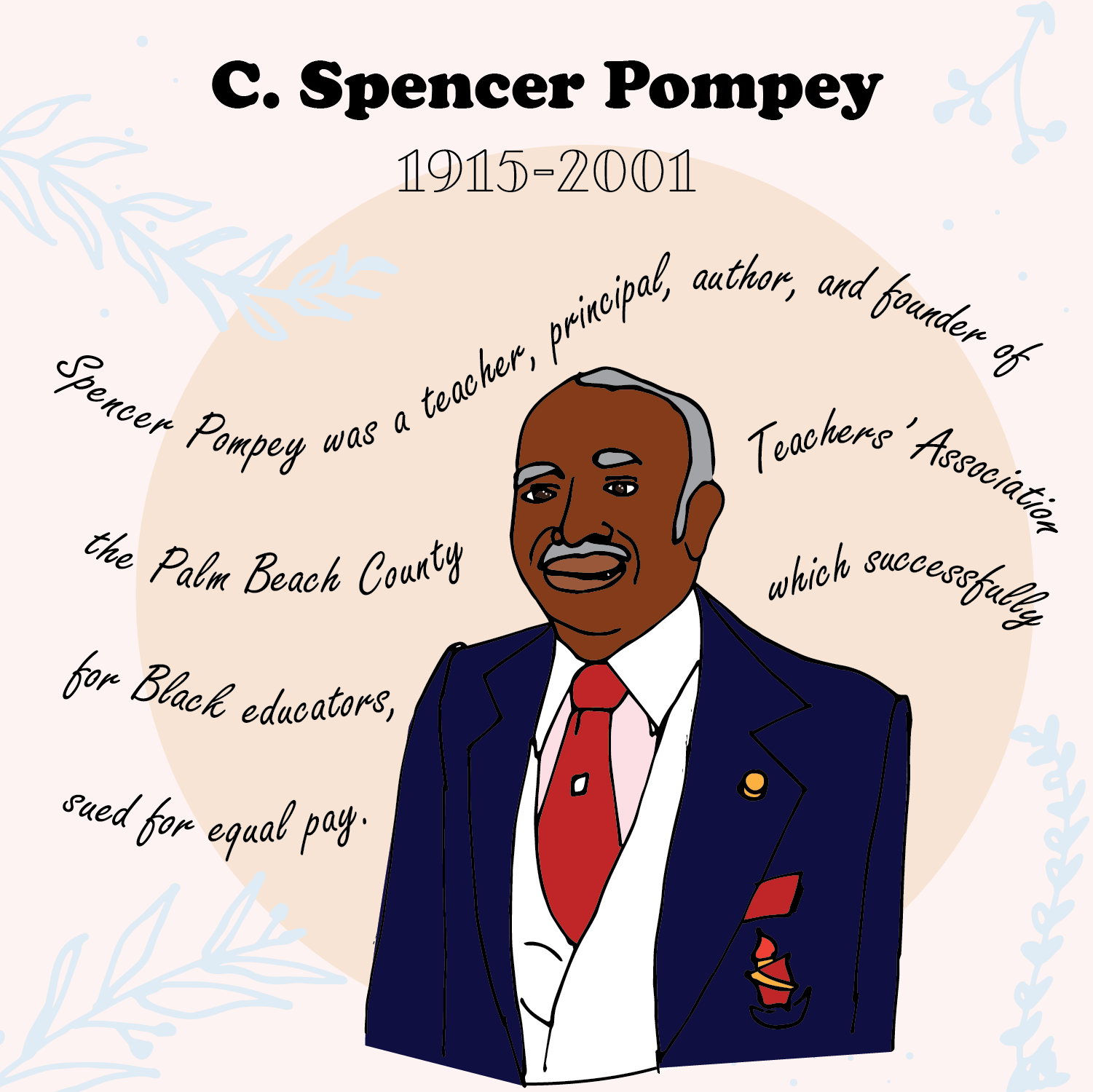
Spencer Pompey (1915-2001) was one of three Black teachers behind a class-action lawsuit in 1942 against the Palm Beach County School Board and its superintendent, protesting the $25-per-month difference in the salaries of white and Black teachers. Supreme Court Justice Thurgood Marshall, who was then an NAACP lawyer, won the case for the Black teachers.
Pompey also protested Delray Beach’s whites-only beach in the 1950s and pushed for the first organized recreation programs for the city’s Black children. He was a coach, social studies teacher, and principal at all-Black Carver High School in Delray Beach.
Hattie Ruth Pompey, Spencer’s wife, was also a respected educator. After her husband’s death, she published his manuscript for the book, More Rivers To Cross.
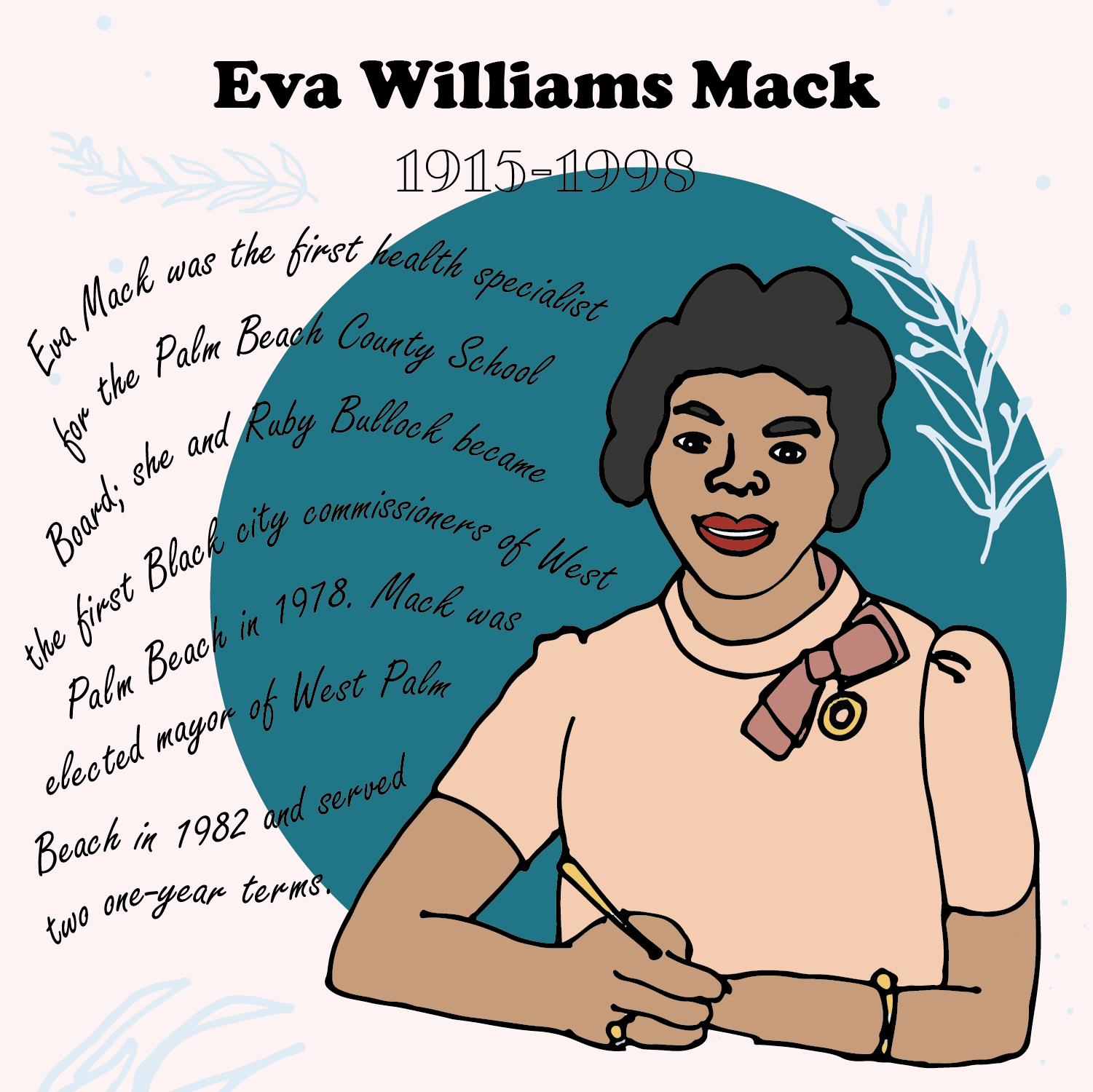
Eva Williams Mack (1915-1998), born in Alabama, came to West Palm Beach in 1948 with a nursing degree and private duty experience. She was the first health specialist of what is now the School District of Palm Beach County, then was transferred to the Palm Beach County Health Department when it was created in 1950. Mack continued to earn higher degrees from Simmons College (MA) and Columbia University (NY).
Through the health department, Mack made contributions to benefit students statewide, including a curriculum on subjects like sex education and substance abuse, and ending the policy of expelling pregnant students.
In 1979 Mack founded the Sickle Cell Disease Foundation of Palm Beach County to help those with the trait or disease. When their building was finished in 1983, it was named in her honor.
Mack was elected the first Black mayor of West Palm Beach in 1982 and served two one-year terms. She and Ruby Bullock became the first Black city commissioners of West Palm Beach in 1978. Mack served until 1985.
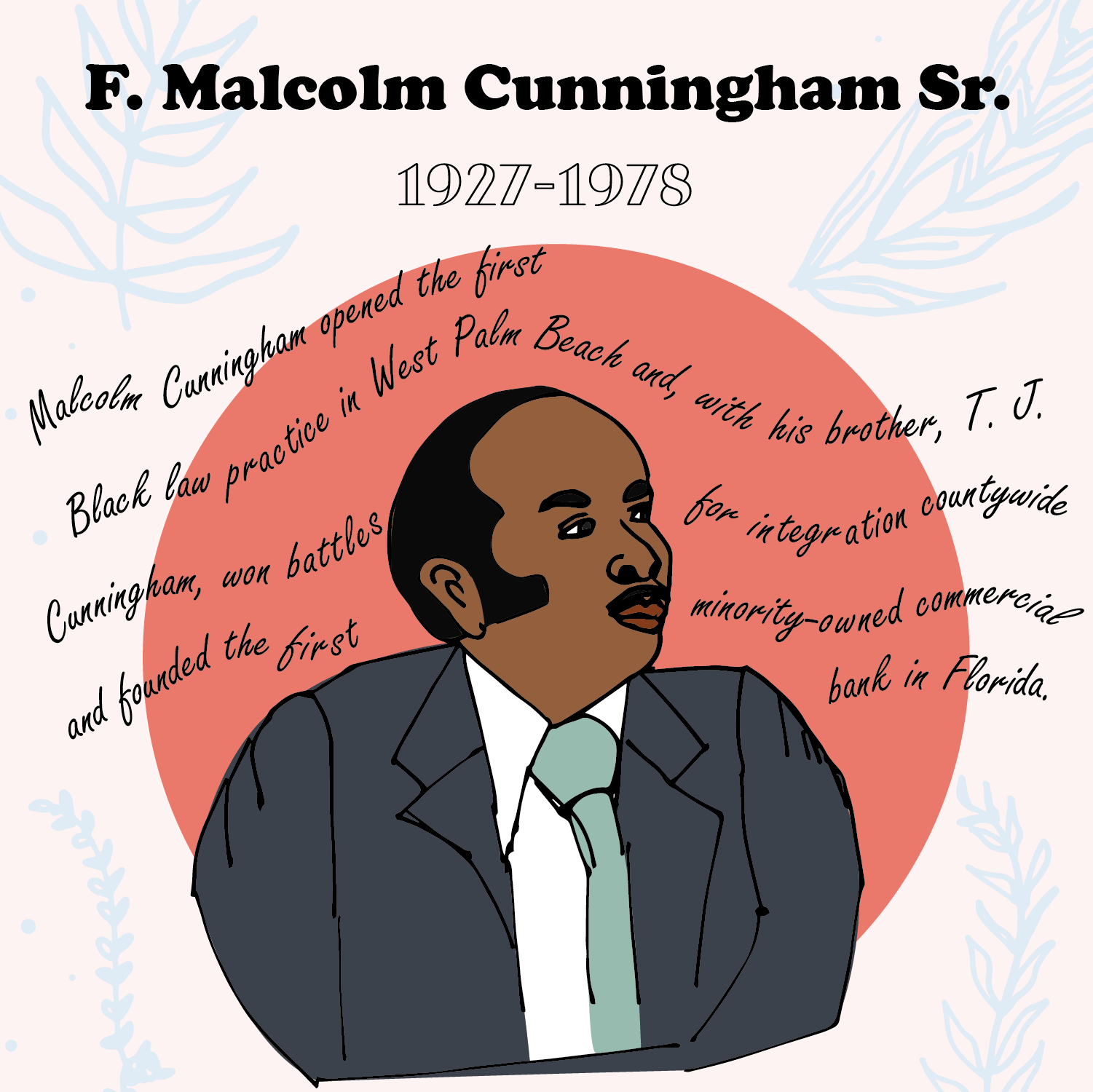
Frank Malcolm Cunningham Sr. (1927-1978) was born in Plant City, Florida, and attended Florida A&M University, where he met and married Nealia Brookins (1925-2001) of West Palm Beach. Because no Florida law school would then admit Blacks, Cunningham received his legal education at Howard University. He opened the first Black law practice in West Palm Beach in 1953 on Rosemary Avenue, where his brother, T. J. Cunningham, joined him in 1960.
Malcolm Cunningham became the first Black since Reconstruction to be voted into public office in Florida when he was elected to the Riviera Beach Town Council in 1962. He left in 1968, as chair, and returned to his law practice, which remains one of Florida’s oldest Black-owned law firms.
Cunningham was the first Black to serve as city attorney for Riviera Beach. He made two unsuccessful runs for the Florida Legislature. He worked with attorneys William F. Holland and I. C. Smith to force school desegregation, and helped to form a Progressive Citizens group in Belle Glade and to integrate the Florida Turnpike’s facilities and West Palm Beach’s golf courses. Malcolm and T. J. Cunningham co-founded First Prudential Bank in 1973, the first minority-owned commercial bank in Florida, which became Southcoast Bank Corp.
Cunningham’s many honors include the naming of the F. Malcolm Cunningham, Sr. Bar Association, representing primarily Black lawyers, and Cunningham Park in Riviera Beach. The Palm Beach Post wrote, “Whatever is ‘open’ about Palm Beach County politics, schools, housing and jobs is due in large part to F. Malcolm Cunningham Sr.’s leadership.”
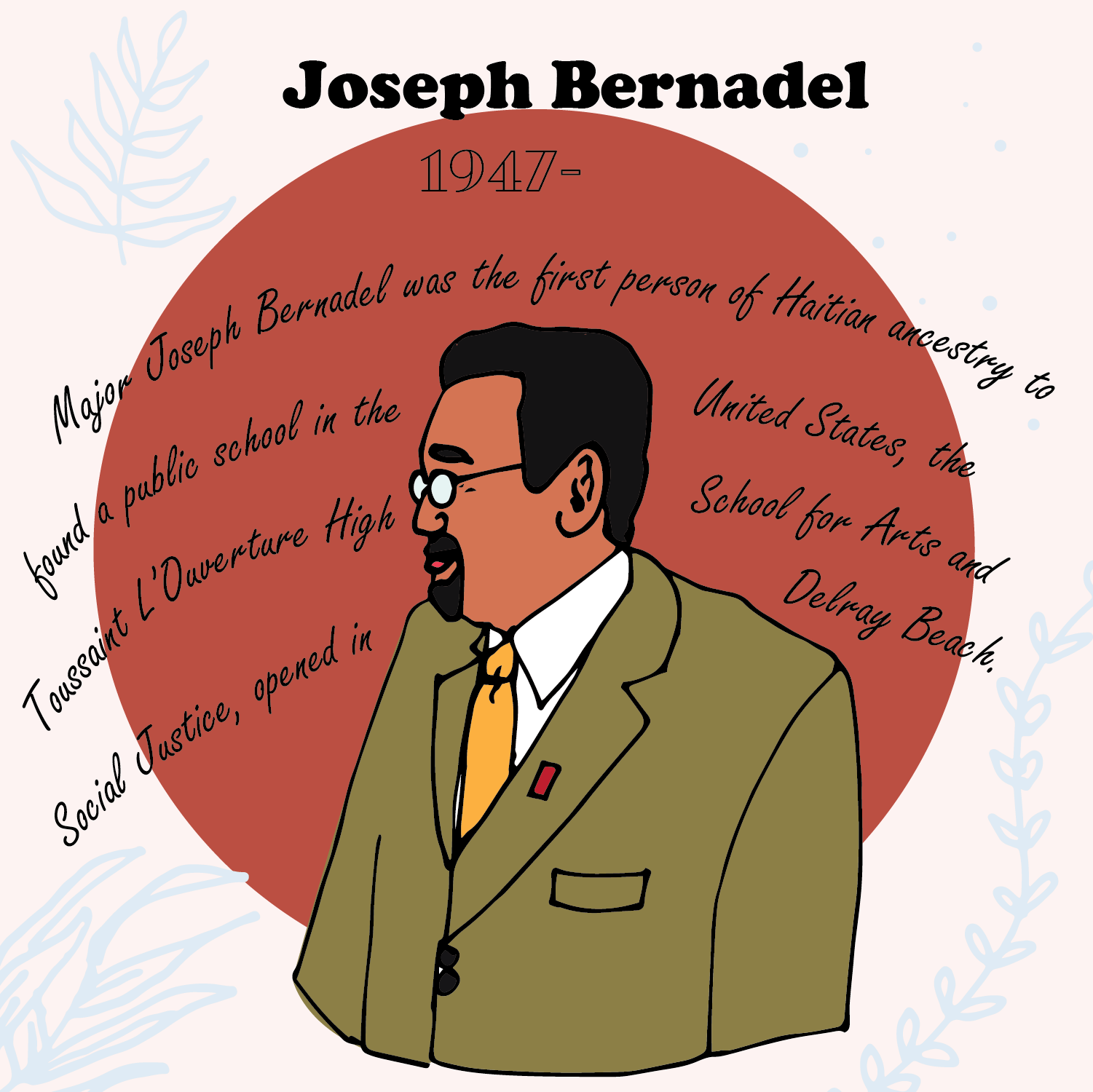
Joseph N. Bernadel (1947- ) was born and educated through secondary school in Haiti and immigrated to the U.S. in 1975. He was a major in the U.S. Army when he retired in 1997 after 22 years, having filled sensitive positions worldwide, including in Haiti and Mozambique, and earning the Legion of Merit award. Bernadel holds a B.S. in Administration from the University of Hawaii and a graduate degree in Latin American and Caribbean Affairs from University of Florida. He speaks five languages.
Bernadel is the first person of Haitian ancestry to have opened a public school in the United States, the innovative, multicultural Toussaint L’Ouverture High School for Arts and Social Justice in Delray Beach (now in Lake Worth Beach). He also represents the Haitian Diaspora to the Interim Commission for the Reconstruction of Haiti formed after the earthquake of 2010.
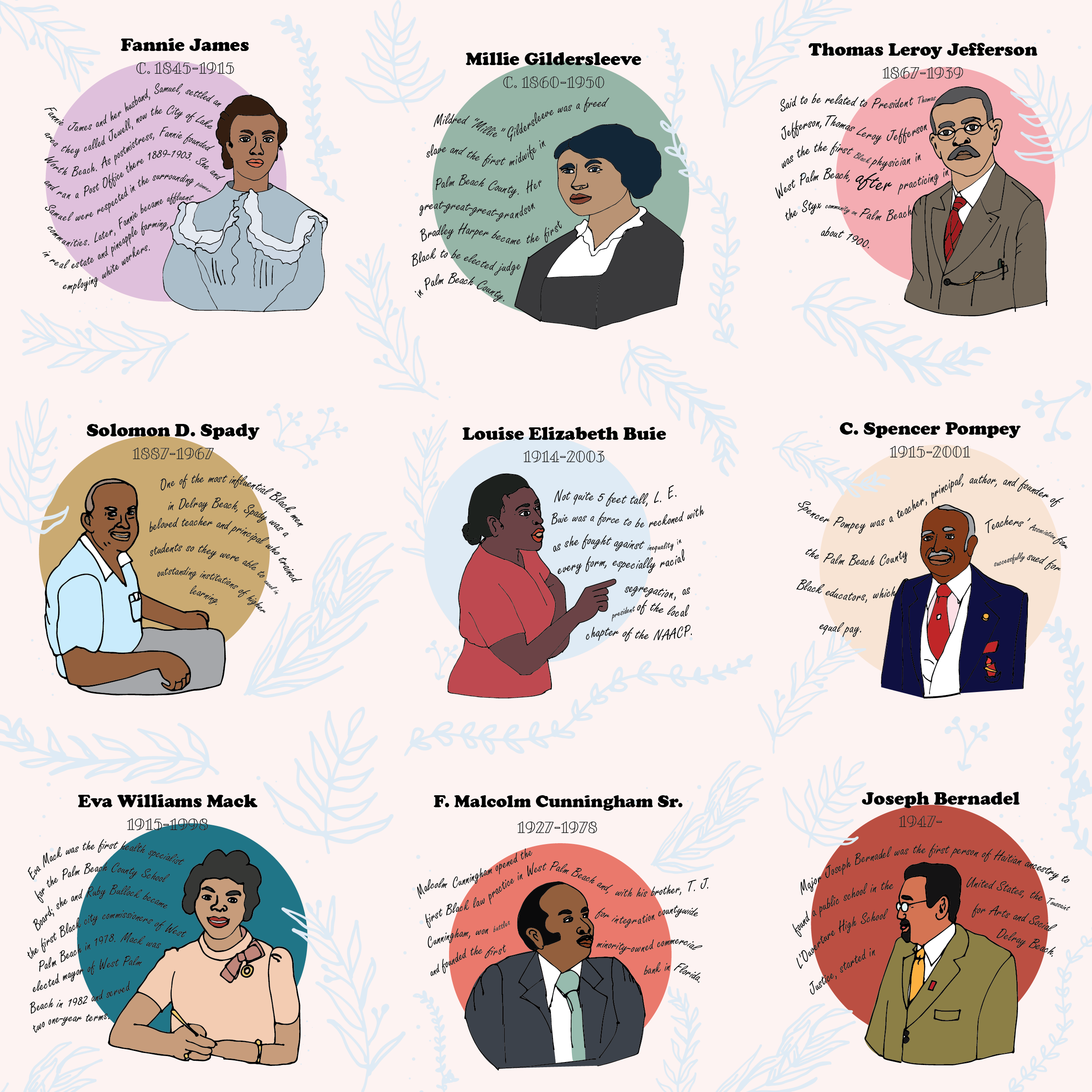
Historical Society of Palm Beach County
You might also enjoy
A Celebration of Pride
Advertisement announcing the opening of H.G. Roosters in 1984. Celebrating
Black Cultural Heritage Trail
Learn of the Rich Cultural Heritage of Palm Beach County
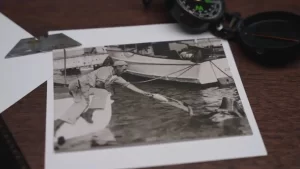
The Conchtown Rumrunners
The Conchtown Rumrunners Behind the Palms, Episode 2 Volstead Act

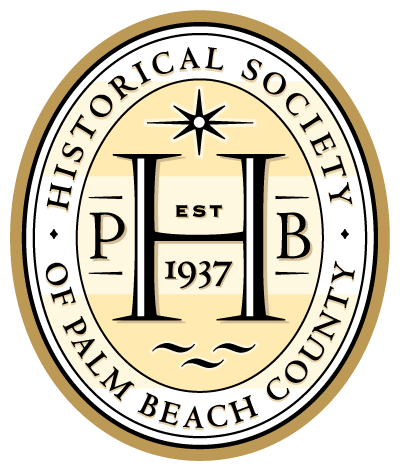

 Catching a glimpse?
This is your peek into o
Catching a glimpse?
This is your peek into o






 You're Invited!
You're Invited! 
Very informative. I learned lots of new information. Thank you for this insight.
Thank you! Check back for more articles as we will be posting new Stories each week!
Thank you, we are glad you are enjoying it! We use Elementor with WordPress.
Thank you, thank you for such a remarkable presentation done in such a wonderful manner. I am originally from Puerto Rico and of African/English descent. I have a profound sense of gratitude to those pioneers that laid out the path for others like me to come to this land and be able to be part of and contribute to our community. We owe it all to them!
Harry Bayron, MD
Thank you so much for posting this information. I remember Ms. Mack as a child as well as Mr. Pompey and Attorney Cunningham Sr. Ms. Mack as well as Attorney Cunningham were patrons of my grandparent’s restaurant (Dunbar Services) when African- Americans were restricted as to where we could dine. It’s good to see them honored.
Thank you for your comment and for sharing your own history! What an honor to have known some of these great Palm Beach County history makers! We are so glad you enjoyed this article!